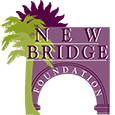
All-Time Winner
 A 12-step program can be an integral part of the recovery journey for many people experiencing addiction. However, for some individuals, the 12-step programs do not feel like the right fit. While these programs do encourage individuals to look outside themselves for strength and guidance, the idea of a higher power has a spiritual base that does not suit everyone’s belief system or recovery needs. For those looking for secular recovery alternatives, a non-12-step program may be a better place to begin.
A 12-step program can be an integral part of the recovery journey for many people experiencing addiction. However, for some individuals, the 12-step programs do not feel like the right fit. While these programs do encourage individuals to look outside themselves for strength and guidance, the idea of a higher power has a spiritual base that does not suit everyone’s belief system or recovery needs. For those looking for secular recovery alternatives, a non-12-step program may be a better place to begin.
At New Bridge Foundation®, we offer individuals effective, affordable 12-step alternatives designed to help individuals overcome their addiction and achieve lasting recovery. With over 50 years of experience, we have been named one of America’s “Best Addiction Treatment Centers” for the past three years, per a survey conducted by Newsweek Magazine. To learn more about our addiction treatment programs in California, reach out to New Bridge Foundation® at 866.772.8491 today.
What Is a Non-12-Step Program?
A 12-step program is a type of addiction treatment that encourages individuals to look outside themselves for strength and guidance. It is partly based on the idea that to heal, we must acknowledge a power greater than ourselves and thus identifies spirituality as an integral part of recovery. The 12 steps were first developed in 1939 by Alcoholics Anonymous (AA) as a way to help people recovering from alcohol addiction and have proven to be extremely effective.
Non-12-step programs are secular alternatives to traditional 12-step recovery plans, and they focus on helping individuals take personal responsibility for their actions without looking to a higher power. There are several different types of non-12-step programs, including Recovery Dharma, SMART Recovery, and LifeRing, to name a few.
Non-12-Step Program in Berkeley, CA
While the 12-step program is extremely effective and beneficial for many, not everybody feels the program is for them. There are many reasons individuals can feel this way, including:
- They feel that they need more individualized treatment strategies
- They want to focus on taking personal responsibility for their recovery without looking to a higher power
- The 12 steps do not fit with their beliefs or values
- They prefer support programs without religious undertones
At New Bridge Foundation®, we believe that individuals should be able to choose either a 12-step program or a non-12-step program depending on their preferences, wants, and needs. Research has indicated that self-help groups (12-step or non-12-step) strengthen relapse prevention strategies and empower participants throughout every stage of the recovery process.
What Do 12-Step Alternatives Look Like?
Several organizations across the country have developed 12-step alternatives for those interested in other options. SMART Recovery, Recovery Dharma, and LifeRing Secular Recovery are just three of the 12-step alternatives available.
SMART Recovery
SMART Recovery is one of the most popular non-12-step programs. It follows a four-point structure that includes:
- Finding and maintaining motivation
- Developing skills to cope with urges
- Learning to manage feelings, thoughts, and behaviors
- Finding balance in life
SMART Recovery is an abstinence based, not-for-profit program founded on the principle that by looking inward and investing in a healthy lifestyle, individuals will be able to begin recovery and achieve independence from their addictions. Furthermore, SMART Recovery practitioners rely on evidence-based knowledge and techniques to help clients develop effective coping mechanisms.
Like the 12-step program, SMART Recovery encourages individuals to find fulfillment and maintain their recoveries by helping others who are just beginning along the path.
Recovery Dharma
Recovery Dharma is a community of peers that encourages Buddhism-based practices and principles to help individuals recover from addictions.
Buddhist addiction treatment practices such as meditation, mindfulness, and breathing can be effective in helping individuals navigate life’s stressors, even those outside of addiction.
Some of the benefits of mindfulness and meditation are that they:
- Help to reduce stress
- Improve stress-related conditions
- Calm anxiety and reduce depression
- Improve mental and emotional health
- Promote problem solving skills
- Improve attention span
- Help to decrease addictive cravings
- Promote better sleep
- Help decrease blood pressure
Recovery Dharma may be applied to any type of addiction, including substance use disorders and addictions to sex, gambling, eating, or shopping.
LifeRing Secular Recovery
LifeRing Secular Recovery is another organization that believes that recovery can be best achieved through non-12-step methods. They follow a three-step philosophy—secularity, sobriety, and self-empowerment—and believe that individuals can achieve sobriety through personal perseverance and peer support without relying on a higher power.
Generally, their meetings consist of members sharing stories, ideas, and issues that they are facing. LifeRing also discourages members from shaming those who experience relapses, instead empowering them to take the experience as a learning opportunity.
Learn More About Non-12-Step Programs in Berkeley, CA
Many people interested in 12-step and non-12-step programs benefit from a blend of both treatment modalities. Each program offers a unique approach to recovery, and gaining support from several different groups can help a person grow their support network.
New Bridge Foundation® offers both 12-step and non-12-step education in the San Francisco Bay Area. For individuals ready to embark on a lifelong recovery journey, New Bridge Foundation® is the place to begin. In addition to exposure to both the 12 steps and non-12-step alternatives, we also offer addiction counseling services that include:
To learn more about New Bridge Foundation® and our approach to addiction recovery, call us today at 866.772.8491.
